I agree with this article. If we cannot predict what the future will look like in 2030 (which is only 13 years away), how can we assume that we can create a knowledge base that our kids will definitely need in 13 years time? Will translation software have killed language barriers by then? Will maths, spelling, coding and lots of ‘technical’ skills be replaced by software or AI that supports us? And if that is the case, what are the things our kids should really excel at if not relationships, curiosity, agility, creativity and empathy?
(If not to say that I strongly believe that the fact that we have almost all knowledge at our fingertips, is killing our creativity. Having everyone at digital arms length is killing interaction. And as all of that becomes more impersonal, we slowly grow unaccustomed to initiating change through vision, having change change us instead.)
We need to get out there and dream. We need to get out there and be passionate about the things we want to achieve. And that is something we should teach our children more than anything else. Though the world might have been explored on the map, life is -and never will be- explored to the fullest. There will always be something more, something extra, something new to build, to explore, to enjoy.
Category: Thoughts (Page 1 of 7)
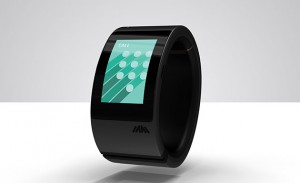 Ok, I know, I am probably not the one to say anything, but I am getting annoyed by the fact that wearables are now defined by watches. It seems that when you are now considering new technology, it really just is the same technology, but in a watch. To me the whole thing has probably come to a climax with Will.i.am’s watch that was presented at Dreamforce yesterday. The whole idea of having to wear a jacket with a battery pack to make sure your watch will actually work for 2.5 days is incredibly stupid. (Even though charging through touching the sleeve sounds pretty cool.) Just as a backpack that will count your steps and weigh you. Whoever thought of this? I mean, honestly. Yes, I understand that there are millions of people wearing watches and that it can be pretty convenient to see on your watch whether you need to ignore yet another call or message. But a backpack that counts your steps? Couldn’t the watch itself do that? Or leave it to the phone in your pocket? And then, I haven’t started about battery life yet. A phone should be something that you set and forget. You wear it around your wrist for the convenience of knowing the time, and perhaps doing some other fancy things. But you really don’t want to have an item that you rely on to tell you when to be where and then find out that you forgot to charge it that one night and subsequently miss your train, your meeting with your boss and getting fired in the process. Ok, that might be putting it a bit too strongly, but in my opinion a watch should at least be capable of being on for a while. The Pebble lasts a week on a charge, so that will at least allow you to be at work on time, perhaps leaving you late for church on Sunday when you forget to charge it.
Ok, I know, I am probably not the one to say anything, but I am getting annoyed by the fact that wearables are now defined by watches. It seems that when you are now considering new technology, it really just is the same technology, but in a watch. To me the whole thing has probably come to a climax with Will.i.am’s watch that was presented at Dreamforce yesterday. The whole idea of having to wear a jacket with a battery pack to make sure your watch will actually work for 2.5 days is incredibly stupid. (Even though charging through touching the sleeve sounds pretty cool.) Just as a backpack that will count your steps and weigh you. Whoever thought of this? I mean, honestly. Yes, I understand that there are millions of people wearing watches and that it can be pretty convenient to see on your watch whether you need to ignore yet another call or message. But a backpack that counts your steps? Couldn’t the watch itself do that? Or leave it to the phone in your pocket? And then, I haven’t started about battery life yet. A phone should be something that you set and forget. You wear it around your wrist for the convenience of knowing the time, and perhaps doing some other fancy things. But you really don’t want to have an item that you rely on to tell you when to be where and then find out that you forgot to charge it that one night and subsequently miss your train, your meeting with your boss and getting fired in the process. Ok, that might be putting it a bit too strongly, but in my opinion a watch should at least be capable of being on for a while. The Pebble lasts a week on a charge, so that will at least allow you to be at work on time, perhaps leaving you late for church on Sunday when you forget to charge it.
 Do I hate watches? Not really. Even though I haven’t really worn one for years. Do I hate smart watches? Nope, not that either. In fact, some 20 years ago, when Seiko released the Message Watch, I was one of the first to own one. Even though reception in my area was flaky to say the least and there weren’t many useful services. But man, did it feel cool to have that. So, 20 years later, we really are just back at that stage, albeit with bigger full color and touch displays. Great.
Do I hate watches? Not really. Even though I haven’t really worn one for years. Do I hate smart watches? Nope, not that either. In fact, some 20 years ago, when Seiko released the Message Watch, I was one of the first to own one. Even though reception in my area was flaky to say the least and there weren’t many useful services. But man, did it feel cool to have that. So, 20 years later, we really are just back at that stage, albeit with bigger full color and touch displays. Great.
But whatever happened to real progress? Don’t knock me here, but honestly, Google Glass was a cool wearable that we don’t really hear about anymore. At least it was something that really added to your every day experience. Though you would probably need a backpack of batteries to have it work throughout the day. Where is the real innovation here? Another display on your wrist is not going to change your world. So, even though I might end up with a smart watch again at some point -if I find a useful one- I am really just looking forward to the next step. What will it be? Levi’s smart pants? The i501.0?
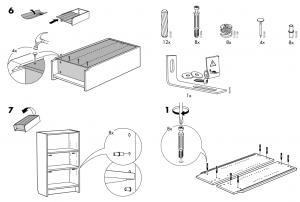 Google Glass has been the first to move information from your pocket to your line of sight. There are two sides to that story and you can love it or hate it. Regardless of your opinion of Google Glass, fact is that this kind of technology will probably be the next generation of wearable technology that will be finding its way into your life in the coming ten years. The reason for this, is that it is just much more convenient to look into the right top corner of your eye, instead of reaching into your pocket. And in turn, due to the fact that Google Glass is always on your head (note: I did not say that Google Glass is always ON), you allow it to relate to everything around you much easier. That is the Age of context. (Yes, Robert Scoble and Shel Israel are writing a book on the subject.)
Google Glass has been the first to move information from your pocket to your line of sight. There are two sides to that story and you can love it or hate it. Regardless of your opinion of Google Glass, fact is that this kind of technology will probably be the next generation of wearable technology that will be finding its way into your life in the coming ten years. The reason for this, is that it is just much more convenient to look into the right top corner of your eye, instead of reaching into your pocket. And in turn, due to the fact that Google Glass is always on your head (note: I did not say that Google Glass is always ON), you allow it to relate to everything around you much easier. That is the Age of context. (Yes, Robert Scoble and Shel Israel are writing a book on the subject.)
Anyway, because Google Glass is so much more aware of your surroundings, it is in a completely different league when you are talking about providing useful information when you need it. No longer will you have to look for information on a detached box. Google Glass will develop further, so it can ‘sense’ your surroundings and answer your questions. That might all sound very sci-fi and that probably is true. On the other hand, it is a lot closer than you might thing. And that was a thought that crossed my mind when I looked at a picture from Daphne Channa Horn today.
Why is that picture relevant for me? Not because she was trying to navigate to her destination using Google Glass. That was nice, but that is something that has been done before. No, the picture triggered me because she was at Ikea. And we all know what Ikea stands for. And I don’t mean great furniture for good prices. I mean that for many people, Ikea stands for evenings of frustration trying to figure out how to mend your relationship after the assembly of that great looking cupboard failed. Enter Google Glass. Finally, you can assemble your cupboard without screaming, yelling or delays. I can see people pay good money for the Google Glass Ikea app. With a simple “Go Glass, build Billy” it will take stock of all the parts you have laid out on the floor. As you look around the room, it will identify the pieces one by one and point you to the right boards and the right screws at the right time. Who needs to 3D print a cupboard at home when we are finally able to assemble our own flat packed furniture?
Ok, granted, some of you might be better at flat packed furniture than I just gave you credit for. But there is a huge market out there to provide real interactive manuals to get things done by using tools like Google Glass. And I am excited about this. You can now fix things yourself. You might even have a professional looking over your shoulder as you do it to give you directions like the surgeon operating via the internet. The possibilities are endless.
What would you like Google Glass to assist you with?
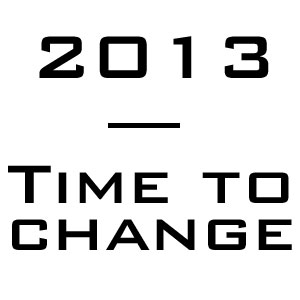 Yes, 2013 has finally rolled around. It has taken a year, but here it is. So, this is the best time to wish all of you a great 2013 in which you can fulfill your dreams and chase even bigger ones. The year in which your startup will succeed beyond your expectations. And the year in which you will learn you can be more than you have ever imagined before.
Yes, 2013 has finally rolled around. It has taken a year, but here it is. So, this is the best time to wish all of you a great 2013 in which you can fulfill your dreams and chase even bigger ones. The year in which your startup will succeed beyond your expectations. And the year in which you will learn you can be more than you have ever imagined before.
I believe 2013 is a year of endless possibilities. You might think that most of the big successes have been achieved, but I strongly disagree. Yes, Facebook is a huge network and it is going to be hard to take over that position. But nothing is impossible. That is why I would like to share my list of areas in which you can be very successful in the coming year and change the world.
- Automotive
Lets just be honest. Since the invention of the car, not much has changed. I know you will all attack me on this statement, but hear me out. Since the invention of the car, the moment we started moving was the moment our ‘regular’ life stopped and life on the road started. Yes, we have mobile phones in our cars these days, so we can connect to others outside our mobile environments. But there are so many opportunities that are still left open. And just fitting a tablet with 3G to your dashboard is not going to nail it. I believe there is a huge market to make our time on the road more and more part of our ongoing life without restrictions. Waze has started something, but that only allows interaction while navigating. I believe that one of the biggest shakeups in social networks will come through a service that allows me to be as connected on the road as I am at my house or my office. And that will do that in a way that allows me to still be fully concentrated on driving or riding. - Television and performing arts
In 2012 we have heard a lot of talk about second screens. Allowing you to discuss what you see with countless others that you might or might not know is a step towards building television to be a better experience. However, there is so much more. I am really looking forward to the first creators that understand that even though people are sitting in front of their ‘box’ to be entertained, they are still willing and able to participate. And yes, this goes beyond voting for the next one to leave the show. The same goes for performing arts artists. There has been much talk about how people are becoming less interested in theatre and smaller shows. Big movies and big musical productions still seem to be doing well, but there is so much more to be had in this sphere than the regular sit down and shut up mentality. I am looking forward to startups that are going to be tackling this approach to make full interaction a much easier possibility for these parties. - Financials
Yes, I can now use an app to wire my money to someone. Really, is this the amount of innovation we were waiting for? I believe there is more. After all, there is much more to my money than ‘parking’ it at a bank. I believe there is a huge opportunity for startups that help us use our money in a positive way again. Perhaps even leaving the complete current banking system behind. After all, so far, banking seems to be about putting money somewhere you trust and having the expectation that you can retrieve it at any time. Perhaps with a bit of profit (interest) if we are really lucky. But is that the end of it all? Back in 2009 I talked to bankers and explained to them that I did not see a reason for regular banks to be very successful anymore. Why? Because I can get all the services they offer at other -online- provides. Whether it is making payments, storing money for later use (saving), lending money for large purchases or investments or lending others money to multiply it. The only factor that seems to keep the banks in place is legislation. But I believe that there are great opportunities out there that allow me to do more with my money and have more fun and effect from it than I currently can. And in ways that allow me to relate to my money and my opportunities in a more social framework. - Video
Every phone now has a decent camera. Every laptop has a webcam. And we are watching more online video now than we have ever done before. I know video is a challenging place to be. Some people feel uncomfortable making a video, but I believe there are many opportunities for us still to be explored. I believe video will become a much more important factor in every day life in the near future than we can imagine right now. There still are countless opportunities for video interaction whether real time or not. Video is an avenue that has only been explored as far as we dared to go. And nobody really saw it fit to travel further than the properties that we already knew. Obviously Loïc Le Meur‘s Seesmic started out as a video commenting system and failed to get that off the ground. But that almost seems to have been the most interactive mainstream video startup attempt yet. So, there is a lot of room there for improvement. - Health
As we are all becoming more and more obsessed with our health, there are great opportunities there as well. Obviously there already are great apps out there that help you loose weight, get fit, run a marathon or outrun zombies. (Sorry.) But there is a multi, multi, multi billion dollar health industry out there that spans the whole wide world. And that is an industry that scares all the governments all around the world as everyone sees the cost of health care rise beyond understanding because of people getting older and older. It is one of the biggest budget challenges that governments have at the moment. And we could make it a lot cheaper if we were able to integrate all our modern technology into tracking your current health, predicting possible problems and offering preventive treatment.
Just five rough areas in which I think there are huge opportunities that I hope to see startups get into in 2013. However, this list is not complete without mentioning context. I know Robert Scoble and Shel Israel are writing a book on the subject and rightly so in my opinion. It is time that we all realize that whatever we build should not be functioning in a vacuum. It should look at the environment in which it is used and pull in information from that environment to make your experience better. Google Glass and Oakley’s Airwave are interesting examples of how external information is combined with digital services to turn whatever you are doing into a much better and much more complete experience. Five years ago, I talked to one of the founders of Layar who told me that “if you are building anything that you are not putting a geotag on, you will be obsolete soon”. His idea about this might not have become reality in the way they had expected, but there are so many outside factors that we are able to combine with services now, that we have to conclude that using context in the right way is going to be changing our online experience completely once again.
So, how can these tips help you beat Facebook? In reality, every single one of them might trigger a revolution that is bigger than Facebook is. Remember, Facebook has only been around eight years and pushed other huge players off the market. Any of these factors, whether it is our mobile life, our entertainment experience, the way we interact through video, how we ‘play’ with our money or how we work with our health can change the way in which we interact with others completely. If the experience is different enough, the social experience is awesome enough and the vision users catch while using it is one they love, it will overtake current day networks. The only thing you need to be able to do is to see beyond the canvas that is there at the moment. See beyond the timeline, beyond the folders and albums that make up social networks. See the people, see their goals and loves. See what motivates them beyond the visible. And you can be on to a winner for 2013.
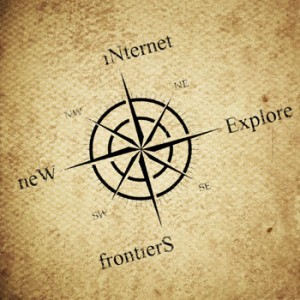 As I returned to IRC today for the first time in at least six years, it struck me. Back in 1994 I was on a unix terminal and I used the internet for at least six to eight hours a day. My phone bills were astronomical. But everything was new. Everything was exciting. The internet, though in black and white and text only in Lynx, was this huge new universe that spanned the earth and had an unsaturable urge to grow into all possible directions. Back in 1995 I blagged my way into one of the Netherlands biggest mail order furniture retailers and sat across their marketing director explaining him why they needed to take their business online. Needless to say that he thought I was a lunatic and that people would never buy their couch online. They went bankrupt last year.
As I returned to IRC today for the first time in at least six years, it struck me. Back in 1994 I was on a unix terminal and I used the internet for at least six to eight hours a day. My phone bills were astronomical. But everything was new. Everything was exciting. The internet, though in black and white and text only in Lynx, was this huge new universe that spanned the earth and had an unsaturable urge to grow into all possible directions. Back in 1995 I blagged my way into one of the Netherlands biggest mail order furniture retailers and sat across their marketing director explaining him why they needed to take their business online. Needless to say that he thought I was a lunatic and that people would never buy their couch online. They went bankrupt last year.
Five years ago I joined Twitter. I found that same kind of people. They were enthusiastic, eager to break the barriers. They saw opportunity everywhere. Nothing was too crazy. They were looking for the edge. The next direction of growth. New things were started daily.
And today? Today the internet has become a common good. And we notice. Everything seems to be smothered in marketing. Money and opportunities to make money seem to rule the sentiments online. Where are the modern day explorers? It is not like the internet has stopped expanding. It is not like there is nothing new on the horizon. And I strongly believe that there are many things beyond the horizon that will change our world forever.
As a kid, I read about the great explorers. And now it is time to get on that horse again. There is more out there. Way more. The only thing that is keeping us from progressing further is the comfort of the city that we have built around us. And it is time we find our way back to where we can enter the jungle from our paved roads and mirror glass buildings. It is time to go.
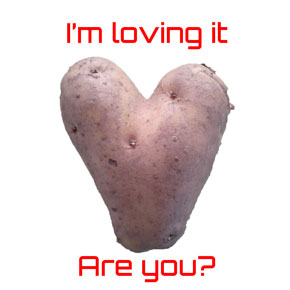 People that know me, know that I am often all over the map. When they think I am going right, I do a quick left and then swerve to the right. Why? Because I love it. Because I am inspired. Well, often anyway. I just love creating big new ideas that might or might not become reality. But I always go for my passions all out. The results? The results are like the email I got the other day from the bus driver on StartupBus Europe. He used to be an entrepreneur in video but the economic situation put him on the bus. StartupBus Europe inspired him to take a new approach and get back to his passion. Those are the emails I love. And that, and other reactions to the impact StartupBus Europe has had on people, are the reasons why I do what I do.
People that know me, know that I am often all over the map. When they think I am going right, I do a quick left and then swerve to the right. Why? Because I love it. Because I am inspired. Well, often anyway. I just love creating big new ideas that might or might not become reality. But I always go for my passions all out. The results? The results are like the email I got the other day from the bus driver on StartupBus Europe. He used to be an entrepreneur in video but the economic situation put him on the bus. StartupBus Europe inspired him to take a new approach and get back to his passion. Those are the emails I love. And that, and other reactions to the impact StartupBus Europe has had on people, are the reasons why I do what I do.
I love people. Yes, that would include you. 😉 And that is why I do what I do. Because I want to share my knowledge, share my thoughts, share my ideas to help you move forward. And I will not be confined to a single space like social media or tech. I promise you that I will go beyond that. My head is full of new ideas and one that I would love to launch in particular. It will take some time before I can share more about that, but it will be something that combines a lot of the things I am passionate about.
And you? Are you inspired? Are you doing what you love? This valentine, consider what your biggest loves are in your life and make sure you embrace them. Whether it is your partner or your passion.
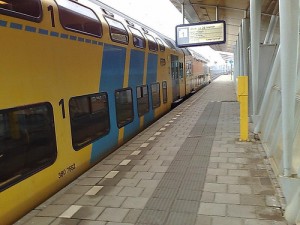 This morning, I am typing this on a bench at a train station while I am waiting for my connection. I have a place where I want to go, but there are no straight trains to get there, nor has getting there been fundamentally changed over the past fifty years. Or even longer. Let’s face it, the last great boost in technology for public transport came when we traded steam for electricity or diesel for areas where they couldn’t be bothered to put the wiring in. And in the meantime, we are sitting in traffic jams with all their negative side effects. Something is wrong here.
This morning, I am typing this on a bench at a train station while I am waiting for my connection. I have a place where I want to go, but there are no straight trains to get there, nor has getting there been fundamentally changed over the past fifty years. Or even longer. Let’s face it, the last great boost in technology for public transport came when we traded steam for electricity or diesel for areas where they couldn’t be bothered to put the wiring in. And in the meantime, we are sitting in traffic jams with all their negative side effects. Something is wrong here.
I know I am probably not the first one to say this, but where are the personal transportation pods? The Netherlands is reasonably covered in rails. Trains go to most of the country, and there are many well situated stations. But very often our train journey takes us along the route of the majority rather than suiting our personal needs. A transportation pod could solve a problem here. Today I am traveling from my home to a city about an hour and fifteen minutes away by car. The journey will take two hours by train. Most of that extra time is taken up by waiting to change trains. So what if we would change all of that?
Imagine I wake up in the morning and I decide where I need to go. The new train system allows me new choices. I choose to travel to my destination in a standard transportation pod. It is a small unit that can hold four people and their luggage that can be pre-reserved or taken from a station based on availability. The fare you pay depends on the way you book your pod. If you pre-reserve, you get immediate availability in a timeframe of 15 minutes around your chosen departure time. And you get a small discount on your trip. You also pay a pod price, that can be shared with your passengers by swiping a card or NFC enabled device within the pod. That way it will become cheaper and easier to provide group transportation for companies or for a day out with the family. The pod then runs along the rails of the train network at high speeds, being constantly guided by a local and central computer system. This takes you to your destination in almost the time as it takes to take your car. A good start.
Now look at it from a business perspective. It offers traditional train travellers the experience they are used to, but without the smelly neighbour. It also offers drivers the individual transport that they claim is their main reason to stand in traffic jams. You can offer multiple sized pods with four seats being the standard and other sizes designed to suit needs. A two seater pod for romantic outings or a twelve seater pod with alternative seating arrangements for meetings on the road. Hooligan pods that have nothing destructable in them, or festival pods that offer a place to pre-party with groups. And all these pods can be priced differently based on the needs of the client, subscriptions, time of day, distance and many other factors. And you can even decide on running very large pods, just like a current train, on busy routes at busy times offering travellers a significant discount for traveling in a group.
Are there no challenges? Yes, there are. Pod availability at stations will be a problem. However, travellers often wait fifteen minutes to get on their train now. Central storage locations at a maximum of fifteen minutes from a station could solve the availability problem for travellers that did not register a pod. However, special pods can only be reserved beforehand. A technical problem is the issue of passing at stations. At smaller stations there might only be two rails available allowing two way traffic. Another ‘parking rail’ ought to be installed so that passengers can easily get in and out of pods without stopping other traffic. And then there is the issue of level crossings. Personal transportation pods might be keeping the booms of the level crossing closed all the time due to their number and irregular schedules. From a business point of view, the biggest trouble lies in the investment. Individual transportation pods need to be built, old trains need to be scrapped and contracts to build new trains need to be cancelled. But the transition does not need to take much time. You can even allow for a bathroom or coffee break button in a pod, allowing new business at stations. And you could think of a million things you can do with a pod on the road when connected to wifi and social networks.
I honestly believe the individual transportation pod on rails has a future. But it’s main advantage is it’s main disadvantage. It is new and disrupts a business model public transportation firms have been using for decades. And obviously there will be problems I haven’t even considered. But I am sure there are ways to solve them without breaking the bank.
Ja, ik ga naar LeWeb dit jaar. Het is een tijdje geleden dat ik naar een groot evenement ben geweest en ik heb er zin in. LeWeb is altijd een conferentie waar veel over gesproken wordt en waar je veel inspiratie op kan doen voor nieuwe projecten, maar ook over de richting van onze online toekomst. Ik ben benieuwd naar de presentaties van gevestigde online diensten als Facebook, Twitter, Google, MySpace, Yahoo en anderen. Maar ik ben vooral benieuwd naar het streven om online te richten op onze persoonlijke wensen. Onze wens om fit te zijn (RunKeeper), om zonder emissies de wereld rond te vliegen (Solar Impulse) en om de wereld te verbeteren voor mensen die anders geen kansen zouden krijgen (Homeless World Cup).
Ik heb een hart voor mensen en voor de wereld. Ik ga naar LeWeb om te kijken hoe we samen “de dialoog met de klant” ook uit het marketing jargon kunnen trekken en om te zien of we de technologie kunnen gebruiken om onze wereld te verbeteren. Voor onszelf en voor anderen. Om er samen duurzamer, socialer, hartelijker, enthousiaster en beter van te worden. Dat is ook het verhaal dat ik wil delen. Ik zal schrijven over LeWeb en ik zal ook zeker weer wat video interviews gaan doen.
Ken jij startups met een visie om (online) technologie in te zetten om onze wereld duurzamer, socialer, hartelijker, enthousiaster en beter te maken? Of ken je mensen die hier een duidelijke visie over hebben? Ben je in Parijs? Of kunnen we elkaar ergens onderweg ontmoeten voor een kort interview? Laat het me dan weten via mijn blog of via arne [@] arnehulstein.nl. Deel je visie met de wereld. Op LeWeb, maar ook daarvoor en daarna.
Lately I have been using public transport more and more. To help the experience, and to save some money, I bought myself an NS discount card. To my surprise the discount card is now loaded on an OV chipcard. A card which helps you pay for public transport around the Netherlands. Or that is the plan. Right now it just works in Amsterdam and Rotterdam on metro’s, trams and busses. Catching a bus today I decided to try the card as I did not have anything else on me. To my surprise it worked and paid my trip without me charging it beforehand.
Back home I decided to dig into what seemed to be a very customer friendly solution. I almost expected the NS (Dutch railroads) to have delivered a card with an automatic charging solution which would enable me to travel without having to think about recharging the card. Alas, upon further investigation it turns out that the NS has the possibility to charge the card, but they choose not to do it. So I dug into the NS site to find where I could switch on automatic recharging. But to no avail. Apparently the only way to do it is to register on the official OV chipcard site and to set the options for charging there. A missed chance for NS customer service if you ask me.
Watching TV is a particularly frustrating activity. I seldom really watch TV and if I do, it is frustrating. No, not because of the commercials. Simply because when I have time to watch the TV there usually is nothing on that is worth watching. It is amazing to see that TV schedules seem to be focused on making sure nothing worth watching is going to be on when I am free to watch.
The strange thing that we have grown to accept is that the TV dictates our lives. If you want to see a movie, you have to sit in front of the box at the time the programmers decided it has to be showed. I know people who have a television schedule. They sit down on Monday to watch this, this and this and then Tuesday is off, Wednesday it is this and so forth. In the Netherlands, having an evening coffee usually coincides with the eight o’clock news and nobody seems to remember which one claimed that timeslot first.
TV is an entertaining medium is the mantra. So, it is entertainment that you can consume passively. If it does not coincide with times you are available, you should get yourself a harddisk recorder the suggestion goes. Is that what we have come up with in this day and age? I have tried that with VHS and believe me, it didn’t work.
In my opinion, TV channels are a thing of the past. something that we need to get rid of as soon as possible. I want a TV with just one channel. My channel. A channel where I select what I want to watch and what broadcaster I get it from. So I might want to see the latest updated news broadcast at seven and then watch a movie, followed by an episode of a series and finishing the night with a documentairy. Or when I feel like something else, I want to be able to select that. I want to be the boss of my TV. I want to tell it what I want to watch when. And in my opinion TV broadcasters should listen to this trend more. I don’t just want to see the same program half an hour later, if facts change, I want to see an updated news broadcast. Commercials I am not bothered about, though if prompted I might want to pay a little money to watch a movie without them. But I want to be able to decide what I do with my time and when I watch what on my digital tv. Broadcasters, please launch My.Channel.nl.
Vandaag stond in Trouw te lezen dat de commissie Brinkman vandaag adviseert om een heffing op internetaansluitingen in te stellen vanuit de overheid. De heffing moet gebruikt gaan worden om innovatieve initiatieven in de krantenwereld te financieren. In april besloot de Stichting Onderhandelingen Thuiskopievergoeding (SONT) al om een heffing in te voeren op digitale opname en afspeel appraratuur met een opslagmogelijkheid. De heffing is geweldig.
Het klinkt misschien wat overdreven, maar ehct, de heffing is geweldig. De heffing is het enige middel dat er voor zorgt dat een verouderd businessmodel toch kan blijven renderen. Want uiteindelijk komt het daar op neer. Het internet is immers niet nieuw. De kranten hebben al heel lang aan zien komen dat er andere maniere van nieuwsgaring gaan ontstaan. Ze konden op hun klompen aanvoelen dat het businessmodel dat is ontstaan rond 1605 met Relation, wellicht de 21e eeuw niet zou gaan overleven. Ook omdat het delen van nieuws via het internet al een van de meest populaire activiteiten was.
Op een andere manier geldt hetzelfde voor artiesten. De structuren die de afgelopen eeuw zo succesvol zijn geweest, worden langzaam onderuit gehaald door het gemak van downloaden en bestandsdeling. Ook hier konden de platenmaatschappijen al jaren geleden aan zien komen dat de huidige manier van verkopen langzaam zijn einde zou gaan vinden. Half jaren negentig waren muziek en films al te vinden via de ftp sites van diverse universiteiten. En hoewel de kwaliteit toen nog te wensen overliet, was te voorzien dat dat binnen afzienbare tijd zou gaan veranderen.
Op het moment dat je geconfronteerd wordt met een verouderd businessmodel en teruglopende inkomsten, kon je maar twee dingen doen. Je kon erin berusten en langzaam ten onder gaan, of je kon je schouders er onder zetten en een nieuw model maken om weer geld te verdienen. Nu is er de derde optie. Je gaat naar de overheid, je klaagt en je stelt een commissie in. De commissie brengt dan een advies uit voor een heffing, zodat je niet zelf hoeft te investeren in een nieuw businessmodel voor je product. Ideaal. Maar als ik heel eerlijk ben, dan zie ik dat niet als meer dan een doekje voor het bloeden. Want succesvolle ondernemingen en succesvolle producten komen voor uit visie. Vanuit die visie komen ook de mogelijkheden om geld te verdienen met je product. En mocht dat niet meteen lukken, dan pas je je businessmodel wat aan, net zo lang tot je verdient. Want consumenten zijn best bereid om te betalen, als het maar is voor iets waarin ze waarde zien.
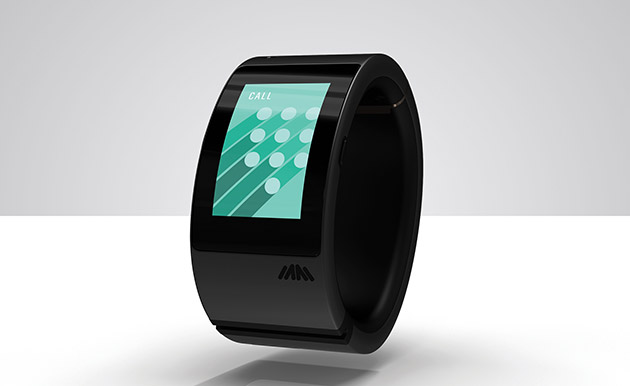
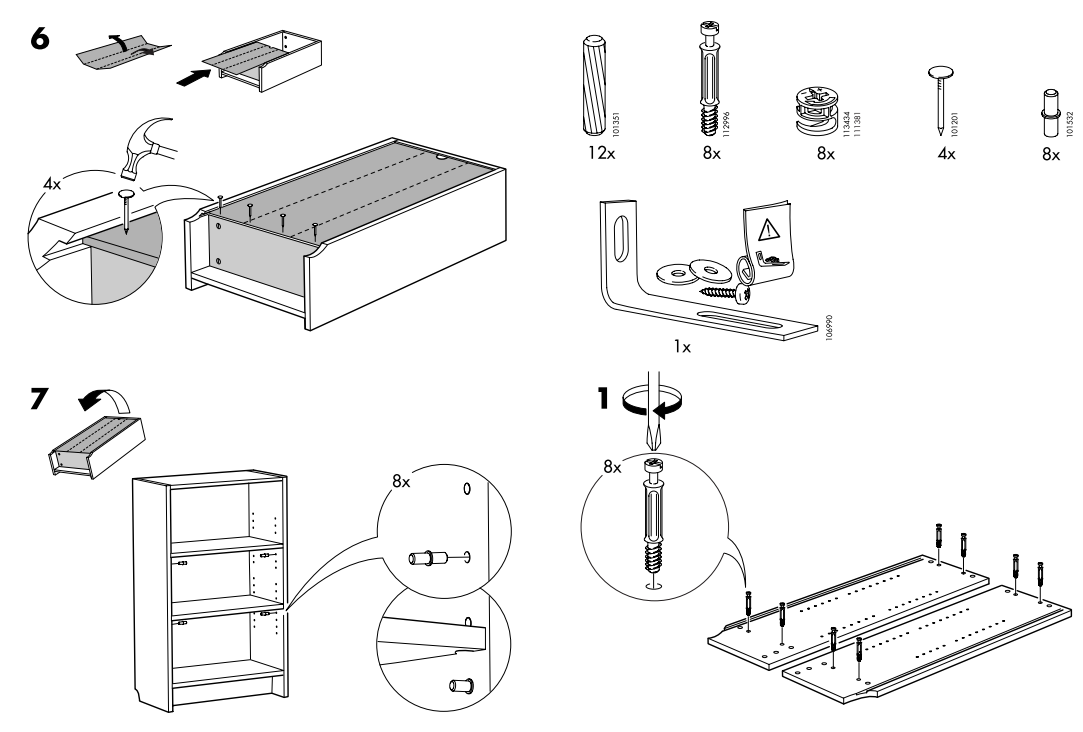
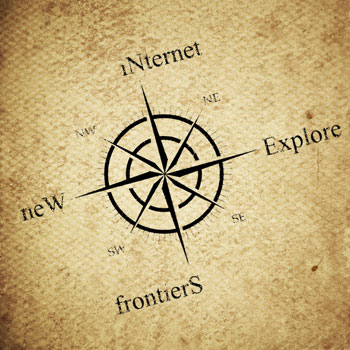
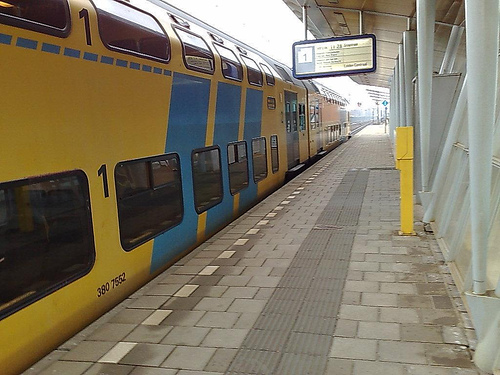
 I love the future. I have loved it ever since I started reading. Technology is shaping our future fast. Back in 1985 I wrote my first computer program. Back in 1994 I launched my first website and I have been working with organizations on integrating new technology ever since.
I love the future. I have loved it ever since I started reading. Technology is shaping our future fast. Back in 1985 I wrote my first computer program. Back in 1994 I launched my first website and I have been working with organizations on integrating new technology ever since.








